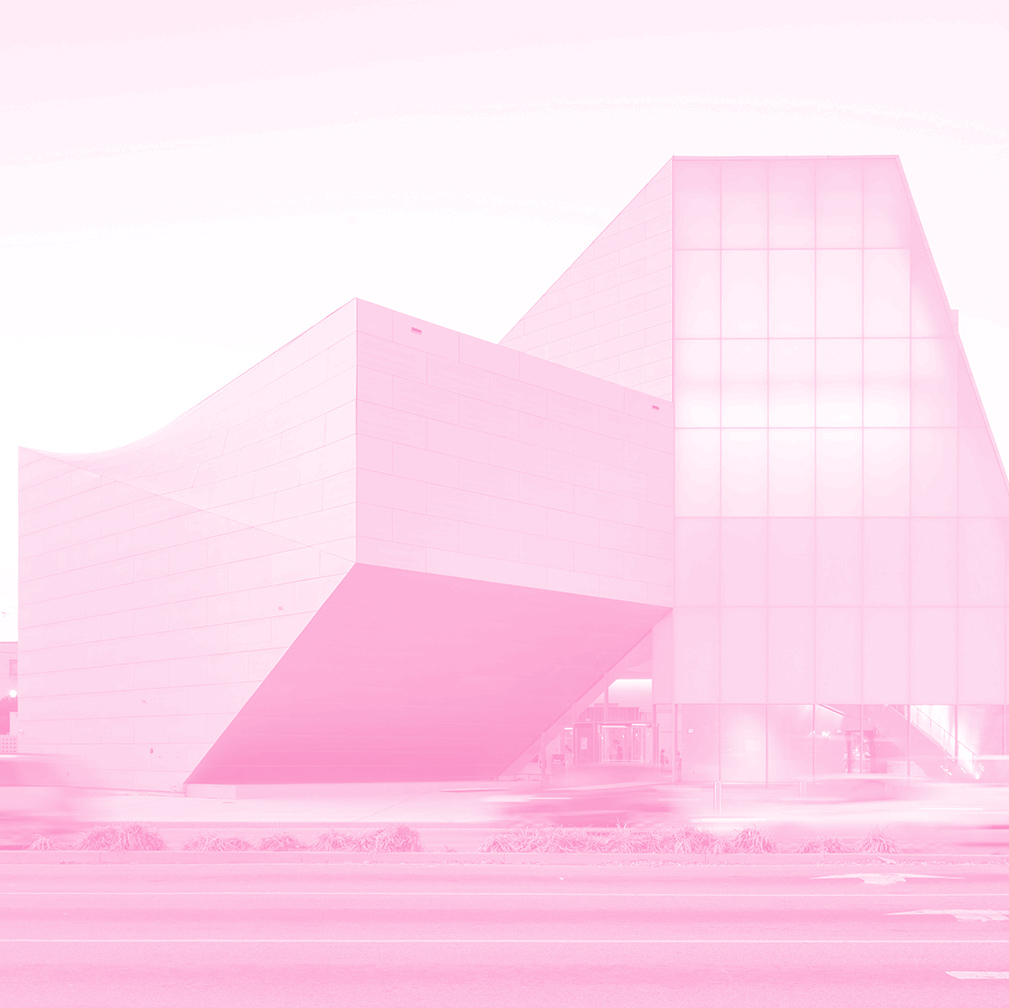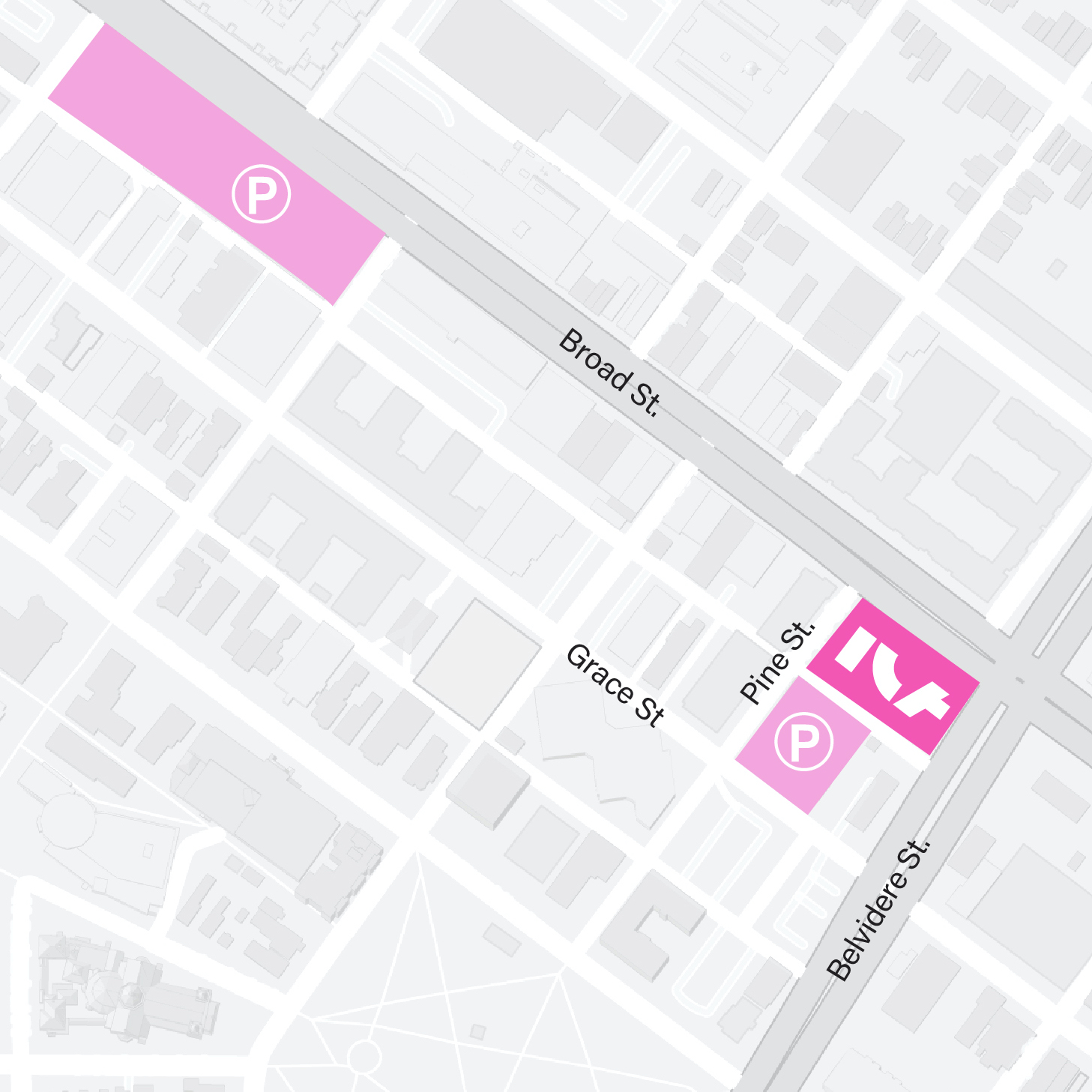









































































Traces of Ecstasy
Feb 16, 2024 – Jul 14, 2024
Traces of Ecstasy is an adaptation of a pavilion and exhibition project premiering at the Lagos Biennial in February 2024. Guided by the theme of refuge, the Lagos Biennial will be held in Tafawa Balewa Square—a site in central Lagos, named after Nigeria’s first prime minister, that hosted the country’s independence ceremonies in 1960. Traces of Ecstasy critically responds to the charged historical residues of this space, taking its constitutive role in postcolonial nation-building as a point of departure.
This second, reimagined iteration of Traces of Ecstasy at the ICA continues the Lagos pavilion’s aims to unsettle the colonial capitalist power structures that maintain and reproduce the ideological legitimacy of the nation-state in post/neocolonial Africa and the wider world. Providing a space for critique, repair, and “freedom-dreaming,” it features artists from the African continent and its diasporas including Nolan Oswald Dennis, Evan Ifekoya, Raymond Pinto, Temitayo Shonibare, and Adeju Thompson. The exhibition expands on the scale and breadth of each artist’s contribution to the Lagos pavilion, presenting works that span sculpture, installation, video, sound, drawing, textile, performance, and digital art, in addition to a reading room and a symposium.
The project is titled after an essay by Rotimi Fani-Kayode, a queer exiled British-Nigerian artist whose photographic works combined Yoruba ritualistic practice and transgressive homoeroticism to destabilize colonial fictions of nationality and positivist rationality. Engaging the diasporic movements of figures such as Fani-Kayode (who studied in Washington, D.C. and New York) and Tafawa Balewa (who visited the United States shortly after Nigeria achieved independence), this recursion of Traces of Ecstasy across the Atlantic both reflects on the structural violence that permeates the African postcolony and considers the historically significant oceanic distance connecting the exhibition’s two sites in Lagos and Richmond. Oriented toward a future horizon of queer, decolonial liberation, Traces of Ecstasy hopes to illuminate alternative, anarchic forms of African collectivity for the twenty-first century.
The ICA’s exhibition is curated by Guest Curator KJ Abudu and coordinated by ICA Curator Amber Esseiva.
The exhibition’s presentation at the ICA at VCU is made possible by generous support from
The Monument Group
Mrs. True G. Harrigan and Mr. John W. Collier III
Margo Ann Crutchfield and Kevin Concannon
Ms. Suzanne D. Hall and Mr. Joseph G. Willis
KJ ABUDU is a curator and critic based between New York, London, and Lagos. Informed by anti/post/de-colonial theory, queer theory, African philosophy, and Black radical thought, his writings and exhibitions focus on critical art and intellectual practices from the global South responding to the world-historical conditions produced by colonial modernity.
KJ holds an MA in Modern & Contemporary Art: Critical and Curatorial Studies from Columbia University and a BA from Duke University where he studied philosophy and political science. He was also a 2022/23 Helena Rubinstein Curatorial Fellow at the Whitney Independent Study Program.
Recent exhibitions include Clocking Out: Time Beyond Management at Artists Space and e-flux Screening Room, New York, May 2023, and Living with Ghosts at Pace Gallery, London, 2022, and the Wallach Art Gallery, New York, 2022. KJ is the editor of Living with Ghosts: A Reader, Pace Publishing, 2022. His writings have appeared in e-flux, Frieze, Mousse, Tate Etc., and numerous other publications and exhibition catalogues.
KJ is curating Traces of Ecstasy, which will open in February 2024 at the fourth edition of the Lagos Biennial and at the Institute for Contemporary Art at Virginia Commonwealth University, Richmond. KJ recently joined the curatorial team at the Swiss Institute (SI), New York, to oversee its public programs and residencies.
NOLAN OSWALD DENNIS (b. 1988, Zambia) is a para-disciplinary artist from Johannesburg, South Africa. Their practice explores what they call ‘a black consciousness of space’: the material and metaphysical conditions of decolonization.
Dennis’ work questions the politics of space (and time) through a system-specific, rather than site-specific approach. They are concerned with the hidden structures that pre-determine the limits of our social and political imagination. Through a language of diagrams, drawings and models they explore a hidden landscape of systematic and structural conditions that organise our political sub-terrain. This sub-space is framed by systems which transverse multiple realms (technical, spiritual economic, psychological, etc.) and therefore, Dennis’ work can be seen as an attempt to stitch these, sometime opposed, sometimes complimentary, systems together. To read technological systems alongside spiritual systems is to combine political fictions with science fiction.
Dennis’ is the 2016 winner of the FNB Arts Prize, and has exhibited in various solo and group shows, including the 9th Berlin Biennale (2016), the Young Congo Biennale (2019), Museu d’Art Contemporani de Barcelona (MACBA), Architekturmuseum der TU München, Palais de Tokyo (Paris) and ARoS Aarhus (Denmark). They were the 2020 artist in residence at NTUCCA (Singapore) and the 2021 artist in residence at the Delfina Foundation (London).
Dennis will be participating in the upcoming Liverpool Biennale in June (2023) with their installation ‘no conciliation is possible (working diagram)’.
EVAN IFEKOYA (b. 1988, Iperu, Nigeria. Lives in London) is an artist whose work in community organizing, installation, performance, sound, text and video is an extension of their calling as a spiritual practitioner. They view art as a site where resources can be both redistributed and renegotiated, whilst challenging the implicit rules and hierarchies of public and social space. Strategies of space holding through architectural interventions; archival and sonic investigations; ritual and sound enable them to make a practice of living in order not to turn to despair.
They established the collectively run Black Obsidian Sound System (B.O.S.S.) in 2018. They have presented exhibitions, moving image and performances across UK and Internationally, most recently: a solo exhibition at Migros Museum Zurich (2022); Herbert Art Gallery and Museum as nominees of the Turner Prize (with B.O.S.S. 2021); De Appel Netherlands (2019) and Gasworks London (2018).
ADEJU THOMPSON (b. 1991, Lagos, Nigeria) is the founder of Lagos Space Programme, a conceptual, non-binary design label. Offering intellectual, ready-to-wear, high-end crafted collections, they explore parallel concepts through multidisciplinary collaborative projects. The name of the label reflects their ethos/manifesto, a name grounded in their roots but still looking outward; a theme rooted within the notion of African futures.
Founded in 2018, Lagos Space Programme aims to explore African futures through a lens informed by slow fashion and by dissecting the intersection of Thompson’s life experiences, thereby communicating ideas of individuality, and proposing new ways to understand beauty.
Thompson aims to continue centuries-old conversations around design practices. This is because the transfer of knowledge and the acknowledgment of cultural and traditional techniques reinterpreted in modern contexts are at the core of their ethos as well as sustainability, reducing inequalities amongst communities, fair pay, local sourcing, responsible production and consumption.
Collaborations are an essential part of Lagos Space Programme’s practice. Our approach is
based on a genuine reciprocity of ideas and skills. We worked with a 7th generation bronze
caster to develop and design objects that highlight the aesthetic and spiritual significance of
bodily adornments in Yoruba culture. Within these collaborations, contemporary forms and
objects are jointly developed, thereby adding a contemporary aesthetic to traditional crafts
with a storied history. For our ‘Post-Adire’ exploration – an ongoing investigation of
storytelling via traditional techniques using resist dyeing with natural indigo – we
collaborate with a community of women dyers in South-Western Nigeria. Also, the creation
of knitwear, jewelry, sculptural objects, footwear, film and music is characterized by
collaborations with artists and designers within the African continent and beyond.
Thompson won The International Woolmark Prize in 2023 and was an LVMH Prize semi-finalist in 2021. Their works are included in the collections of the Victoria & Albert Museum, London, and the Rhode Island School of Design Museum, Rhode Island. Recent exhibitions include Africa Fashion, V&A Museum, London, and Osun Sèègèsiat, Alara, Lagos.
RAYMOND PINTO (b. 1991, Connecticut, USA. Lives and works in New York) is a multidisciplinary artist. Their practice moves through the African diaspora to create art. Pinto, a graduate of NYU Tisch and the Juilliard school, has an MA in Performance Studies, and a BFA in Dance. In addition to performance, choreography, and visual art, they are also a DJ. Through a queer lens, their work situates the archives of underrepresented ancestors and creatives who inspire them to persist through the adversity of dispossession. While resistances to the neoliberal regime guide Pinto’s art, they are equally aware of the necessity of relishing in pleasure-based practices. Pinto is currently engaging questions of diaspora in relation to groundlessness, in order to arrive at embodiments of honed abstraction by way of queerness and spirituality.
Recent performances and exhibitions include Ingathered, Judson Church, New York, 2021; In Longing, CUE Art Foundation, New York; Untitled (Unintelligible), at Participant Inc., New York, 2020.
TEMITAYO SHONIBARE (b. 1995, Lagos, Nigeria. Lives in London, UK). Central to Temitayo Shonibare’s practice is creating critically engaged interventions that reveal the backstage of the indoctrinated performance that is life. Conducted as social experiments, she brings the subjective interiority of daily encounters to public space using her body as the medium. Through staging actions that disrupt general socialised norms, she plays with the imagined boundaries between public and private spaces – mentally, physically and digitally – questioning who is and what makes up the public. She seeks to expand the site of art making from a physically grounded space to a relational encounter between individuals, affecting how viewers-cum-participants experience the work.
Recent exhibitions include Lagos, Peckham, Repeat: Pilgrimage to the Lakes, South London Gallery, London, 2023; Bloomsberg New Contemporaries, South London Gallery, London, 2021; HDL, Xxijra Hii, London, 2021.

 Closed
Closed

 Area Map
Area Map  Parking
Parking